Vaccine skepticism is hot right now—and not because it’s trending on TikTok. If you’ve heard murmurs about “RFK Jr.’s vaccine team” or “CDC advisory chaos,” yeah, you’re not imagining things. Scientists are literally picketing outside CDC headquarters. Meanwhile, Kennedy’s handpicked advisers are circling the wagons around “vaccine safety concerns” that many medical experts say are overblown. So, where does that leave you? Confused? Frustrated? Maybe even torn between what feels intuitive and what data-driven folks claim? Let’s unpack this mess together.
No lectures. No eye-rolls. Just facts, stories, and a bit of venting. Think of this as coffee chat with your nerdy friend who double-checks everything—aka me.
CDC in a Tug-of-War
Picture this: It’s June 2025. You’re standing outside CDC HQ in Atlanta, baking in 95°F heat. A group of retired scientists is waving signs: “Science > Politics” and “Trust the Experts.” Inside, a new advisory panel—Robert F. Kennedy Jr.’s team—is reshaping vaccine policy. Let’s get real: This isn’t just about masks or mandates. It’s about who gets to define “vaccine safety concerns” and whether heated debates will trickle down to your local doctor’s office.
The panel includes folks like a vaccine skeptic who spent 2025 leading a federal study tying immunizations to autism. Yep, that study was debunked decades ago, but here we go again. And some CDC experts, like Dr. Fiona Havers, resigned, saying, “Americans are going to die if this keeps up.” Ooof. That’s a rough quote to sit with, right?
So why does this shift matter? Because guidelines about childhood shot schedules or flu updates don’t happen in a vacuum. When top scientists feel muzzled or replaced by ideology, the ripple effect hits your pharmacist’s advice, your pediatrician’s charts, and even your state legislature. Colorado, for instance, is already plotting how to moderate federal vaccine changes Colorado Newsline. Let’s just say it’s not a “wait-and-watch” kind of vibe anymore.
Why We Doubt Vaccines
Vaccine doubts aren’t some new personality flaw. They’ve been around since the days of smallpox—people arguing, “But what if?” That “if” can be paralyzing. Let’s look at the stuff that keeps folks up at night, and why it might not tell the full story.
Autism Fears? Still Knocking on Old Doors
Growing up, maybe you heard “vaccines cause autism.” Probably from a family friend or that one comment thread that just won’t die. The truth? That idea came from a 1998 study so fake it got retracted. Yet in 2025, some communities still cling to it. Why? Because trashing hypotheses isn’t how humans think. If something bad happens after a shot—who knows? Maybe that kid catches a cold? My cousin once swore her toddler had a rash after Pertussis, and Google diagnosed him with “immune overload” (spoiler alert: doctors said he didn’t). Stories like this shape our fears more than spreadsheets. UNMC.edu
Trust Issues? We’re Dealing With That
Speaking of trust: Modern public health feels like a soap opera. First, Pfizer executives withheld data. Then a former vice president of the company gained anti-vax fame… yep, like that “Michael Yeadon fired for trying to upend government guidance thing.” Genetics, corporate honesty, privacy—these layers confuse the basics of “Do the shot.” People who distrust institutions see vaccine Critics as allies, not stats. Makes sense, kinda. But that’s what all shaky relationships are made of.
Pandemic Fallout
After the past few years, vaccine doubts feel…urgent. I mean, when mandates switch from optional to life-changing overnight, it’s rough. Jennifer Reich, a vaccine hesitancy expert, calls this the “reluctant parent” pain point—doing what’s best vs. feeling cornered into a decision UC Denver Interview. Balancing perceived freedom & safety is hard when people conflate “Big Pharma” with “Big Government.”
But Wait…Vaccines Work, Right?
Here’s a stat that should chill you out: Childhood vaccinations dropped from 18.4% risk of preventable disease before vaccines to just 0.5% in 2025 PubMed. Even the common flu? Less deadly because of the shots. But Kennedy’s crew? They stress “natural immunity” while downplaying decades of herd immunity research Science.org.
This needs unpacking: Are these advisers just a conspiracy cult? Or are they picking at real gaps in communication? Let’s get messy.
Childhood Shots: Still a Hot-Button
Okay, hear me out. If your baby’s pediatrician says “six shots today,” adrenaline spikes. You start thinking about preservatives, aluminum, and the 12-presenter CDC PowerPoint. But guess what? Most scientists say those ingredients are rice crackers in the scheme of things—e.g., minimal risks compared to the perils of skipping shots.
Still, a Pew Research 2023 study notes how confidence in childhood vaccines isn’t the same as confidence in the newer ones like mRNA jabs. Childhood shots? People See polio. MRNA mess? “Unproven magic” vibes, even with the efficacy stamped in data.
What About the Risk of Side Effects?
Side effects do exist. A very small percentage (<1%) might have allergic reactions or fever. My Aunt Jo had a paralysis scare after a tetanus shot—but she still urges me to get the flu one each year. Bias isn’t all bad (we all have it)—but shunning science over rare cases is the same as skipping bike helmets because “someone got a concussion anyway.”
The Biden Admin Push vs. Kennedy’s Team Today
This tug-of-war isn’t new. Remember when Biden’s team said "vaccines are safe for everyone, 6 feet apart!" while social media screamed about takeovers and control? Now Kennedy’s advisers act as if the administration overpromised safety (Lastly implying “Yeah…there are real vaccine doubts here billion folks should've raised”). It’s a full cycle—even as science says: We’re (mostly) okay.
How to Help Without Sounding Like a Robot
Okay—non-judgment discussion: If someone you know is vaccine-curious (or roll-back resistant?), yelling “Do better!” online won’t fix it. Neither will intelligent debates using phrases like “statistically significant risk.” So how do you connect? Let me tell you a story.
Empathy: Your Secret Sauce
Meet Gary Bennett, a Duke University prof whose recipe for vaccine skeptics is weirdly simple: “Listen. Don’t sludge them with facts. Ask, ‘Why are you scared?’” Duke expert. I know—it sounds softer than folding laundry in public school drama, but that’s what gets folks microwaved from “anti” to “choosing carefully.”
Leaning Into Shared Values
You know those friends who don’t trust vaccines but swear on their kids’ safety? Same page there! Start with “What can we do to help your kids be safer?” Then—carefully—blend in the science that supports shared ground (e.g., saving time, fewer appointments, less missing school days Science.org). Makes the science worth the chat, right?
And don’t forget another awkward truth: Vaccine critics often don’t oppose “all” vaccines. None oppose smallpox, because…we no longer run into it. But for matters like HPV, complete random. Maybe they think “exploring options” makes them better parents. So lead with ‘What if your child’s cancer could be prevented?’ before hitting “herd what?”
Breaking Myths Without Sounding Like a Villain
This is a touchy part—even writing this makes me sweat a bit. But myths linger because people haven’t slept on the alternatives. Let’s play myth vs. fact, but I’ll try to keep it conversational.
Myth 1: “Vaccines Cause Autism”
You’ve heard me say this, but let’s clarify: No, vaccines don’t cause autism. The original Andrew Wakefield study was fraudulent. But rolling off an internet rabbit hole of, say, "state.gov/proofautismpart1" can take minutes to undo. Try reframes like: “Technology connects us, but sometimes the internet sells half-truths like sugary cereal.”
Myth 2: “They’re Pushing Too Many at Once”
Why do pediatricians stack shots at 2 months? Fun fact: Most kids feel overwhelmed with more than two. So docs offset at once. Less stress on the baby and you, too. Jennifer Reich suggests not sidelining parents: “If you hit them with ‘schedule=rules,’ they push back. Just show that spaced shots aren’t statistically safer UC Denver Interview.”
Myth 3: “Natural Immunity > Vaccines”
Natural immunity feels cooler—like hiking in the wild vs. sitting in an Uber meditating about coordinates. But the truth? Measles can leave you with post-viral encephalitis. ‘Natural’ ≠ safe. A University of Nebraska researcher breaks it down: “If you catch the virus instead, you’re rolling 1–100 odds. Vaccines limit it.” UNMC.edu. Spoiler: Kids don’t get points for survival.
When Empathy Meets Resistance
Here’s the kicker: Empathy helps, but resistance still bubbles up. Let’s talk about where both sides trip—and how to bridge gaps.
Christiansects and Faith-Based Fears
Some faith communities I respect emphasize spiritual healing over earthly medicine. Take Christian Science, where prayer is primary. But most denominations accept vaccines, even if hesitance lingers in certain corners Pharmacist.com. So if you observe someone from one of these groups, maybe don’t pitch biology facts—you ask how vaccine confidence shows up in their lens of love. People don’t argue doctrine with strangers; dialogue beats debate in sacred spaces.
Low-Vax States: A New Frontier
Mississippi (53.5%) and Louisiana (54.8%) aren’t just stats—they’re symptoms of a trust gap. Kennedy’s panel posing more vaccine doubts could tank rates further, even for preventable stuff like whooping cough US News. You’re not just talking policy—you're talking reluctance that's decades in the making.
Denver’s Playbook for Convincing Critics
Want a blueprint that doesn’t push folks to conspiracyville? Denver, Colorado’s approach this summer Colorado Newsline. Instead of Federal panic, they framed it around local safety and personalized options. Their takeaway? Vaccines should mean “choose to protect your own community” instead of “submit to The CDC Machine.” Because listening > lecturing, yeah?
Light at the End of the Tunnel?
Okay, real talk time: Vaccine skeptics aren’t villainous. Sometimes they’re where public health info falls short. If, say, a local hospital downplays their concerns or scientists sound like grade-angry robots, people turn elsewhere. But here’s the bridge walk: Our system is still beset with artificial intelligence-generated misinformation Science.org. Still, experts aren’t going to walk the line of “throw vaccines under the bus” to regain trust. So…how do we move forward? Let’s figure it out together.
Closing the Loop on Vaccine Talks
There’s a Gallup poll: In 2025, only 40% of Americans rate vaccines as “extremely important” down from 56% in Reagan’s era of data, which I actually find bananas. But the Pew Research shows that confidence for childhood shots held steady between 2020-2023—except the 20% who linger on vaccine critics in the info-scatter Gallup data, Pew research.
Sometimes, Doubt Is Just…Human
We evolved to distrust new stuff, especially when it hits flesh. For folks without medical credentials, terms like “antibody-dependent immunity” might as well be Greek. A 2019 study breaks this down: Vaccine skeptics see the process more like spiritual roulette than a guardian of health PubMed.
So…Where Do We Go From Here?
Bunch of headlines, protests, and political smoke? Yeah, it’s exhausting. Our takeaway: Skepticism isn’t about numbers or epidemiology slides. It’s about square footage in someone’s right to decide—and whether that includes preemptive health stuff like immunization. The safety research shows up in droves, even with Rohlfes the spa town, but we spent almost three years of pandemic mowing down mixed messaging. So it's no surprise that clarity wanes despite evidence piling up.
Our final thoughts? Don’t let political clown college delay important conversations with your doctor. As your friend with curiosity and caution, I recommend we examine both the hubs of honest vaccine doubt and science to feed your gut—but don’t let one substitute the other. It’s not about our side or “wokeness.” It’s about ensuring our kids aren’t grounded for infections that hospitals could’ve side-stepped for pennies at birth.
If all this makes your head spin, find a doctor or local clinic you trust. Open honestly, ask the questions, and let’s keep science a thing, rather than a warzone. Got thoughts? Reactions? Share them—this doesn’t end with one post. It ends with each of us, well, talking.

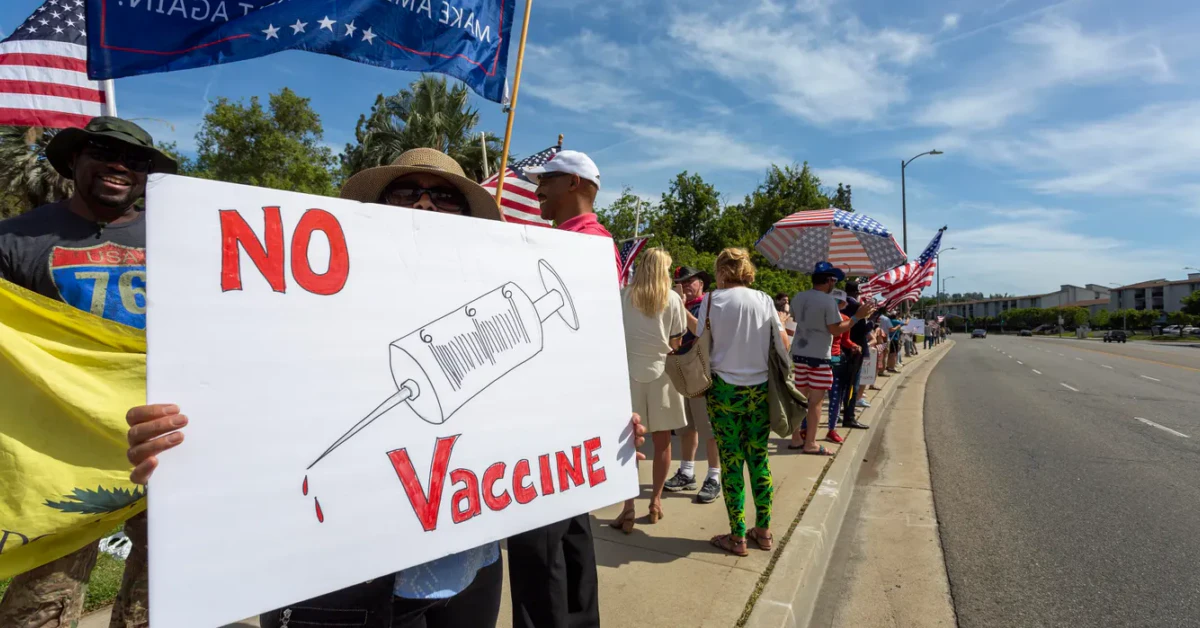
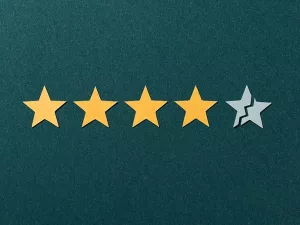


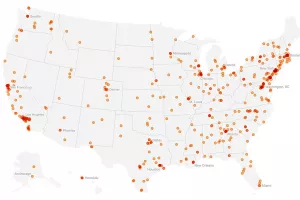

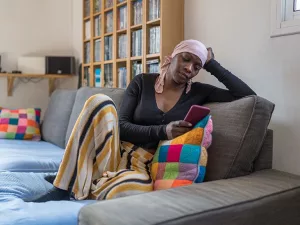







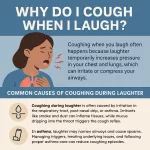









Leave a Reply
You must be logged in to post a comment.